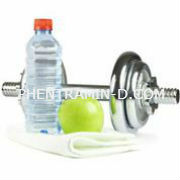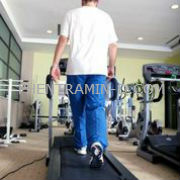 Only recently, Nestle has announced that the researchers at the leading food and beverage manufacturer are working on the “Exercise in a Bottle” project, which will help them develop a portable, edible product that is guaranteed to provide fat-burning characteristics for maintaining fitness. The developers believe the product holds great potential to capture the attention of individuals who are not too keen on working out or may be too busy to stick to a regular fitness regimen.
Only recently, Nestle has announced that the researchers at the leading food and beverage manufacturer are working on the “Exercise in a Bottle” project, which will help them develop a portable, edible product that is guaranteed to provide fat-burning characteristics for maintaining fitness. The developers believe the product holds great potential to capture the attention of individuals who are not too keen on working out or may be too busy to stick to a regular fitness regimen.
The research team behind Nestle’s Exercise in a Bottle Project deems it to be a major breakthrough. Researchers claim they are now capable of comprehending the mechanism in which enzymes that are critical to metabolism regulation are stimulated by a compound known as C13. According to the team, successful stimulation of enzymes can ultimately result in the development of a consumable item having the fat-burning attributes of exercise.
However, people who are excited to hear this and want to make use of this product right away will have to wait for a while since, currently, the product is in its initial phase. It will still be a long time before it finally makes its way to consumers. Nestle’s Exercise in a Bottle Project will have to be tested and reviewed by regulators before it can be launched on the market for consumer purchase.
The scientific team at Nestle reveals that substantial progress has been made in the quest for natural compounds that act as metabolic triggers. In the past, researchers have studied plant and fruit extracts that could adapt AMPK, which is an enzyme that could ultimately function as a master metabolic switch in regulating the utilization of fats, along with sugars, by the body.
According to Kei Sakamoto, a scientist well-known for researching circadian rhythms and diabetes at Nestle, elaborated that the enzyme could assist people who are not capable of tolerating strenuous exercises. The enzyme would function in the same manner as exercise but cause less strain. As an alternative to long periods of running, the enzymes would function after a modest exercise routine, like brisk walking.
A professor of metabolic medicine at the University of Glasgow, Naveed Sattar, highlights significant past research work that has attempted to accomplish what Nestle’s Exercise in a Bottle Project aims to deliver—that is, developing products that exhibit fat-burning products—but to no avail. He also points out that, so far, no such product that claims to be a substitute for exercise has ever passed clinical trials. It would be a matter of time before Nestle could officially launch this product.




